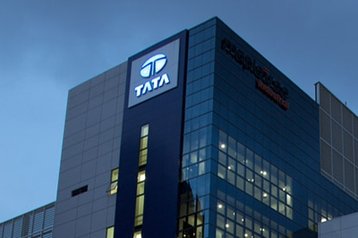ST Telemedia of Singapore has completed a deal giving it a majority stake in data centers owned by Indian giant Tata.
Tata Communications has sold 74 percent of its data center business in India and Singapore to ST Telemedia Global Data Centres, a subsidiary of ST Telemedia, in a deal first announced in May, which is valued at INR 31.4 billion ($47m). ST Telemedia will run about 17 data centers in India and Singapore, leaving Tata with 27 facilities in the rest of the world.
Joint venture
The deal has been seen as an example of telecoms providers pulling back from data center ownership, focusing on their core skills, and early reports back in 2015 suggested Tata wanted to get out of data centers entirely. As it turns out, Tata is keeping a strong shareholding in these data centers, which will be managed by ST Telemedia, and both companies hope to grow their data center business, according to the filing.
Tata Communications, part of the giant Tata conglomerate, runs a quarter of India’s data centers, a holding it built up rapidly through acquisitions in 2013 and 2014. Before this sale, it had around a million square feet of data center space worldwide.
This deal covers Tata’s 14 colocation data centers in cities including New Delhi, Mumbai, Bengaluru, Chennai, Kolkata and Pune. Tata transferred these sites to an independent subsidiary, Tata Communications Data Centers (TCDC) in 2014, before announcing in 2015 that owning data centers within India is not core to its business there.
The deal also includesTata’s three facilities in Singapore.
These sites will now be run by a joint venture led by ST Telemedia, which has a stake in data centers in all major economic areas, including Virtus in the UK.
Paying down debt
“I think Tata’s priority here is to raise cash and pay down some of its debt,” Adi Kishore, analyst at DCD Intelligence said when the deal was announced. “Their Indian portfolio was probably the most attractive to ST Telemedia, which wants to expand in India and China. Long-term Tata would like to migrate its business to managed services and cloud.”


